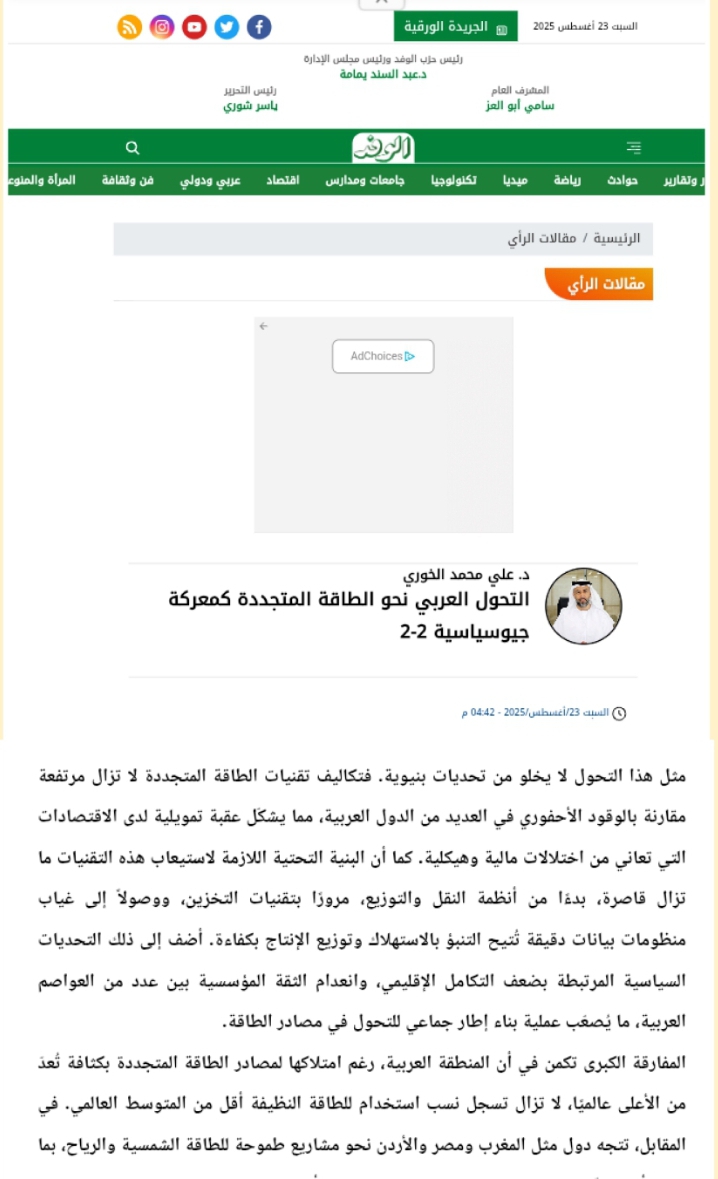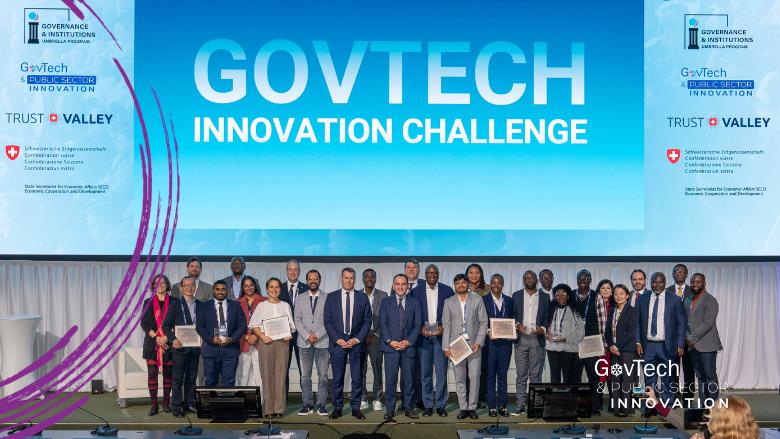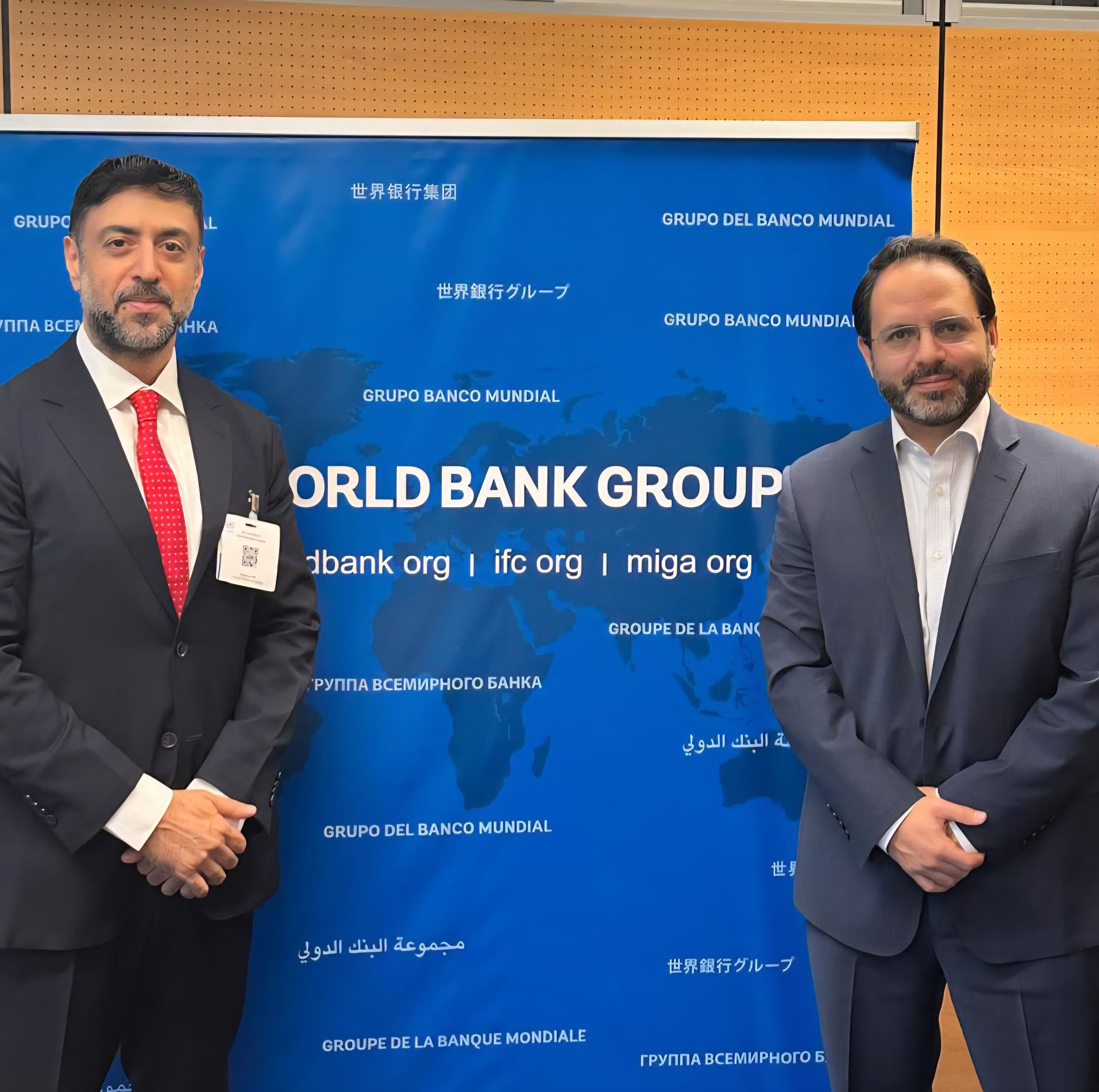Source: Al-Wafd Newspaper
Prof. Dr. Ali Mohammed Al-Khouri
Such a transition is not without structural challenges. The costs of renewable energy technologies remain high compared to fossil fuels in many Arab countries, posing a financing obstacle for economies suffering from financial and structural imbalances. Furthermore, the infrastructure needed to accommodate these technologies remains inadequate, ranging from transmission and distribution systems to storage technologies, to the absence of accurate data systems that enable consumption forecasting and efficient production distribution. Added to this are the political challenges associated with weak regional integration and a lack of institutional trust among several Arab capitals, making it difficult to build a collective framework for the energy transition.
The great paradox lies in the fact that the Arab region, despite possessing one of the highest concentrations of renewable energy resources in the world, still records rates of clean energy use below the global average. In contrast, countries such as Morocco, Egypt, and Jordan are pursuing ambitious solar and wind energy projects, which could form the nucleus of new regional alliances, provided that the concept of Arab cooperation is redefined from ad hoc coordination to a decades-long strategic project.
In the face of these realities, it is imperative to reframe the Arab vision for energy according to a logic that goes beyond the notion of “responding to international climate pressures,” viewing the energy transition as a gateway to building long-term economic independence. This vision requires reforming legal systems to facilitate technology transfer, modernizing education and training systems to build human capital capable of leading green innovation, and establishing transparent energy exchanges that set prices based on market criteria rather than political support equations.
Thus, the issue is no longer solely related to the future of energy, but rather to the future of the Arab state in the international system. How can an Arab world negotiate its position on the global economic map while relying on a fossil-fuel export model whose strategic value is eroding? And how can the future of future generations be secured if Arab economies remain hostage to the fluctuations of oil prices and European carbon markets?
At a time when the rules of the international economic order are being rewritten, Arab cooperation in the field of renewable energy may be the last opportunity to build a modern Arab integration project based not on emotional or constructive arguments, but rather on a careful calculation of interests and a clear overlap in production, markets, technologies, and sovereignty.
Perhaps the most important question now is whether Arab countries will succeed in breaking away from the “every country for itself” logic and establishing a collective clean energy system capable of forging a new Arab role in the twenty-first century? Or will missing this moment leave the region as a bystander to an international landscape being reengineered without them? The answer to this question will not be written in conferences, but in the projects, the interconnection lines, and the models that countries choose to implement today, not tomorrow.












